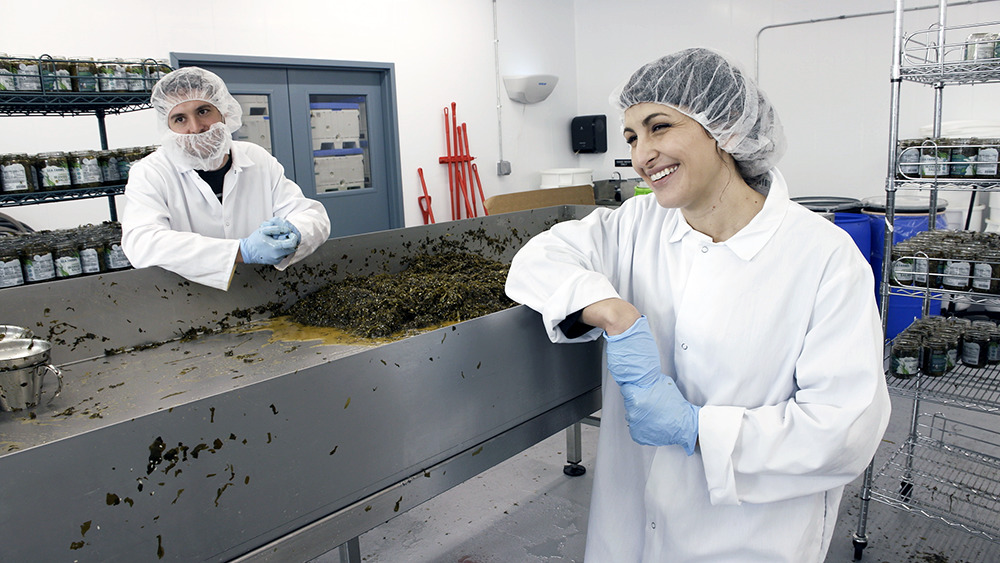
Climate change is real, and it’s here. Thankfully, so are women.
A 2023 United Nations report grimly states that we are “firmly on track toward an unlivable world.” Erratic weather patterns, wildfires, hurricanes and floods are already showing us shades of what that world will look like.
While our global leaders seem sidetracked, ordinary citizens, community watchdogs and activist organizations around the world continue to sound the alarm. Folks like those at Extinction Rebellion engage in regular acts of civil disobedience, while groups such as the Climate Emergency Fund funnel money toward such efforts. Activists like Greta Thunberg and Vanessa Nakate have created major platforms of their own and inspired a generation of young eco-warriors.
Research shows that women around the world are more vulnerable to the climate crisis, so it’s perhaps no surprise that women are often front-and-center in these call-outs and actions. In honor of Earth Day, here are several women leaders who have dedicated their lives, and work, to combating climate change.
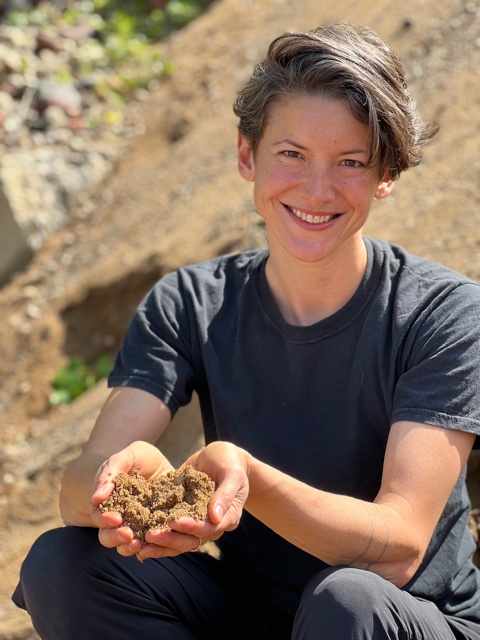
The 2023 Winners of 'Women in Science Incentive Prize'
You might not recognize their names, but Claudia Christine Avila, S. Perl Egendorf, Julia Janson, Lydia Jennings and Elizabeth Koziol – the winners of our 2023 Women in Science Incentive Prize – have done innovative work in the field of soil. These scientists are helping us save a precious natural resource for future generations through gardening initiatives, soil-testing vans and more.
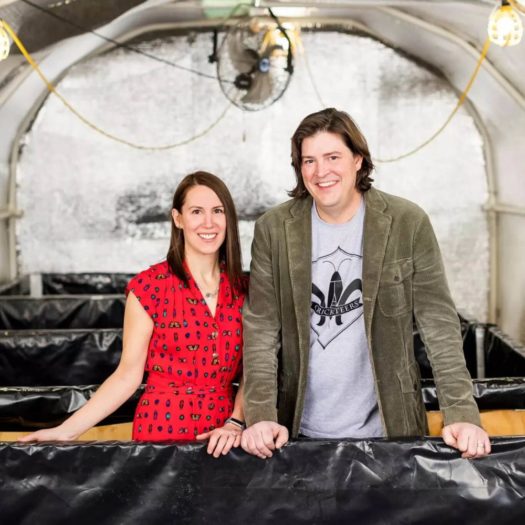
Claire and Chad Simons launched 3 Cricketeers in 2015. (Credit: 3 Cricketeers)
Claire Simons
Our food supply problems seem likely to get worse before they get better. Thankfully, women like Claire Simons, co-founder of 3 Cricketeers, are working hard on offering us an eco-friendly alternative – even if it might be hard for some to stomach. Her cricket-based snacks are introducing the sustainable concept of eating insects (something more than a quarter of the world does, by the way) to diners throughout the U.S.
Rachael Slattery
At Wild Harmony Farm in Exeter, Rhode Island – a family farm that sells organic pork, grass-fed beef and pastured poultry – Slattery and and co-owner Ben Coerper use regenerative agriculture techniques, which help restore soil health and reduce the impacts of climate change. It’s sharply different from how most food in the U.S. is produced today, which is why Wild Harmony Farm hopes to share its methods, like cover cropping and rotational grazing, with other small farmers.
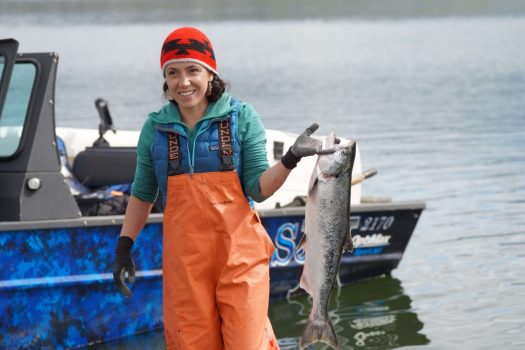
Amy Cordalis, Yurok Tribe's general counsel. (Credit: Matt Mais of the Yurok Tribe)
Amy Cordalis
Talk about thinking globally and acting locally. Amy Cordalis is leading efforts to restore the Klamath River, which runs from Oregon into Northern California and empties out into the ocean, amid a water crisis that has killed its fish population. She’s a lawyer by trade, and was appointed general counsel for the Yurok Tribe in 2016. She’s using her legal expertise to push for the removal of dams that her tribe believes are harming the river’s health – and as a result, its fish supply.
Karin Washington
An urban farmer and food justice advocate, Karin Washington is the co-founder of both Rise & Root Farm in Orange County, New York, and Garden of Happiness in New York City. She fights for the belief that nutritious food is a human right by ensuring access to it in underserved neighborhoods – like the ones she grew up in. Right now, “healthy food is based on the color of your skin, how much money you make, and where you live,” she told The Story Exchange – and her mission is to change that by empowering other urban growers.

Traci Phillips of Natural Evolution. (Credit: Natural Evolution)
Traci Phillips
Traci Phillips’ Natural Evolution recycles dead cell phones, washed-up computers and more, so they can’t clog landfills and release toxic substances into the environment. The Tulsa, Oklahoma, entrepreneur says her Native American roots inspired her to turn a personal mission into a successful business. “My tribe, many years ago, believed we had a responsibility and we were actually stewards of our surroundings and our earth,” she told us. “It feels like I am fulfilling that.”
Briana Warner
Fast-growing kelp can help mitigate the impact of climate change by removing carbon and nitrogen from the water. And compared with land plants and animal meats, kelp is loaded with digestive and nutritional benefits. Yet 95% of edible seaweed is imported – something Briana Warner, CEO of Atlantic Sea Farms is on a mission to change.
Nona Yehia
Architect Nona Yehia thought there must be a better way for Wyoming residents to get fresh produce than importing it from other states. Several years after that initial thought — and following some healthy skepticism from naysayers — Vertical Harvest finally opened in 2016 as the first vertical farm in the northern hemisphere. Today, the farm produces lettuces, tomatoes, microgreens and more for restaurants, shops and her community as a whole.

(Credit: Greenpeace)
KlimaSeniorinnen
A group of women took their climate change concerns to court – and won. The European Court of Human Rights recently ruled that the Swiss government failed to effectively act on curbing the effects of climate change, after the Club of Climate Seniors, a 2,000-member group of 64-and-older Swiss women, brought the matter before the court. Experts say the case sets “a crucial, legally binding precedent.”
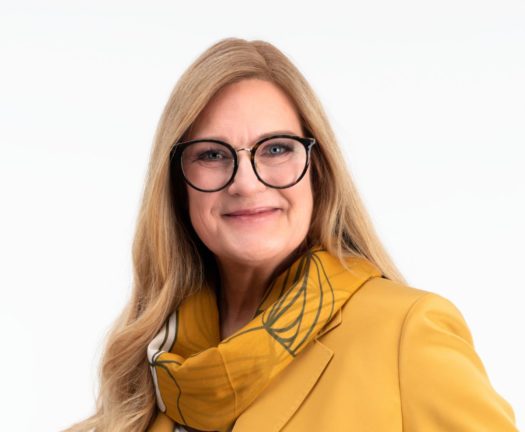
Kari Warberg Block, founder of Earthkind. (Credit: John Stuart)
Kari Warberg Block
Kari Warberg Block’s business, EarthKind, is also a maker of all-natural pest-control products. It began with her packing pouches full of kitchen ingredients to repel roaches, rodents and other pests. She launched a small business with them in 2007 — well over a decade later, those pouches are the backbone of EarthKind, a venture that has sold tens of millions of patented, EPA-registered products.

Priscilla Debar, founder of Faubourg. (Credit: Maggie Marguerite Studio, Faubourg)
Priscilla Debar
Priscilla Debar is bringing eco-conscious women of color out of the shadows by spotlighting them at Faubourg, the online boutique for sustainable fashion she launched in 2017. A Black woman of West African descent, she prominently features fellow fashionable women of color on her company’s site — an intentional effort inspired by the lack of diversity in eco-friendly spaces that she noticed as a customer. “We’re talking about the future of the planet — there shouldn’t only be one type of beauty represented” in sustainable fashion, she says.
Jessica Schreiber
Jessica Schreiber is fascinated by trash. And in New York City, where she runs fashion recycling startup Fabscrap, there is plenty of it: residents alone produce some 12,000 tons of it a day. Her nonprofit works in the city’s world-famous fashion industry, picking up and reselling its textile cast-offs — yards of cotton, strips of wool, pieces of luxurious silk, linen and leather. As commercial waste, such scraps aren’t eligible for the city’s residential recycling programs, and, more often than not, end up in landfills. “That to me was unacceptable,” she told The Story Exchange.
Sarah Montgomery
“As we look at climate change, [amaranth] is a plant that’s so healthy, and that can adapt to so many different places and conditions,” says Sarah Montgomery, co-founder of Qachuu Aloom Mother Earth Association, who hosts events to share ancestral knowledge. The plant is native to Central America, but with permission from a collective of Maya Achi farmers in Guatemala, its seeds are being sown in the U.S. – a boon, Montgomery says, as the solution to climate change lies “within nature. We just need to learn how to listen.”
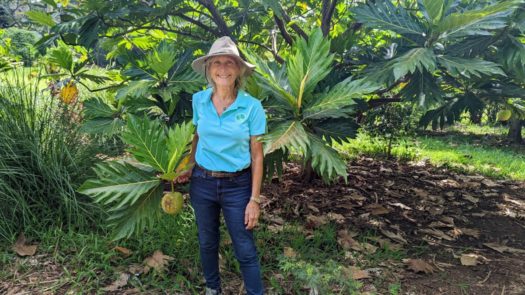
(Credit: Lucy Sherriff)
Dr. Diane Ragone
In a world threatened by climate change , breadfruit is increasingly seen as a stable crop that can help combat global hunger. Ragone is the director emeritus of the Breadfruit Institute of the National Tropical Botanical Garden, based in Hawaii. For the past three and a half decades, she has been studying, analyzing, growing and preaching the breadfruit gospel. Almost single-handedly, she has brought this superfood to the world’s attention.
Sharon Rowe
Sharon Rowe admits that part of her reason for launching Eco-Bags Products, Inc., which makes and sells reusable totes, lunch bags and more, was to have more control of her time. But first and foremost, Rowe wanted to offer her neighbors — and all of us — an alternative to wasteful single-use plastic bags. “[W]hen I realized there were other people thinking like I was [about plastic bags], I decided to start a business,” she told us. Since launching, Eco-Bags has been featured by the likes of Oprah and Time Magazine.
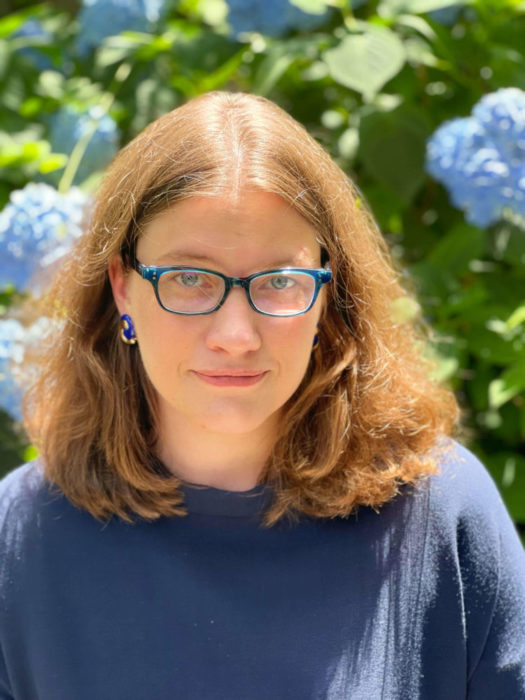
Sarah Kapnick is the third woman in NOAA’s history to be appointed to the role of chief scientist. (Credit: NOAA)
Sarah Kapnick
The chief scientist from the National Oceanographic and Atmospheric Administration, Sarah Kapnick was appointed to her post in July 2022 by President Joe Biden to help prepare a woefully under-prepared nation for the ravages of extreme heat and other hazards brought on by climate change. She’s only the third woman to occupy the role. But as a Princeton-educated scientist with a Ph.D. in atmospheric and oceanic sciences, not to mention years of experience working in the field, she’s more than equal to the task.
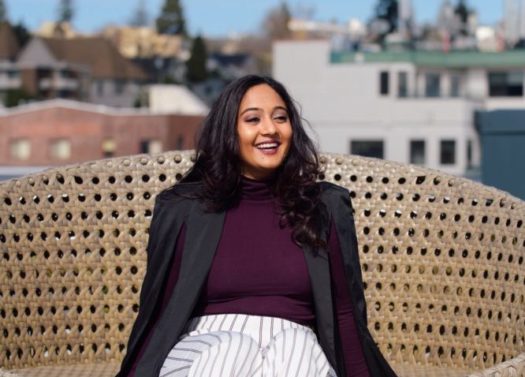
Nivi Achanta
Achanta is the founder of Soapbox Project, a platform that provides bite-sized climate action plans. She was inspired to launch after she noticed her friends disengaging from the news after finding current events to be too overwhelming to process. Today, the Seattle entrepreneur says she’s proud to have built a virtual space that allows people to get involved in social and environmental justice at a more comfortable pace.
Amy Keller
Keller, whose family sells the famous Dum Dum lollipops, makes fruit chews from misshapen produce. The goal is to reduce food waste – a big problem to solve, as about 40% of food is wasted globally. The discarded produce often winding up in landfills, where it rots and produces methane, a greenhouse gas that traps heat in the atmosphere. Through its industrial machinery and equipment, Keller makes fruit chews at a mass scale, allowing her and her team to rescue an estimated 1 million fruits and vegetables a year.

